By 2050, one-third of the world’s energy will need to come from renewable sources, like solar or wind. No, this isn’t a statement made by environmental organizations, but by two of the world’s largest oil companies, British Petroleum (BP) and Shell.
For countries like Iceland, which is already generating 100 percent of its energy from renewable sources, that statistic doesn’t sound ominous, but for the majority of the world’s countries who are still dependent on fossil fuels, it’s time to start thinking about what will power mankind’s way forward.
At the forefront of alternative energy innovation are a number of homegrown Israeli companies that have come up with unique solutions for harnessing the power of the sun, wind, waves and waste into the energy sources of the future.
Emefcy
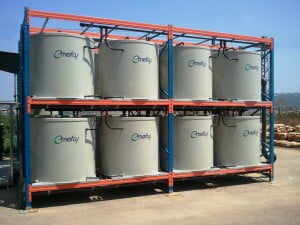 Did you know that the stuff you flush down the toilet could be used to charge your phone? Well neither did we until we heard about Israeli company Emefcy’s efforts to find a certain kind of bacteria in waste that produces electricity as it decomposes organic matter. Founded in 2007, Emefcy’s goal from the get-go has been to harness the power of this bacteria so that it can be used as a source of constantly renewable energy. So far, they have identified three kinds of bacteria that are naturally present in wastewater and produce about half a volt of electricity each, proving Emefcy has achieved its goal of “self-cleaning” wastewater, saving treatment companies anywhere from 30-50 percent annually on electricity bills. However, the buck doesn’t stop at the waste treatment plant (although we may wish it did); Emefcy’s founders assert that their methods of electricity generation have proven so successful at larger waste plants that the bacterial method could be used to generate megawatts of electricity, and maybe one day even power an entire power plant. Named part of the 2013 Global Cleantech 100, Emefcy’s revolution in the world of wastewater and insights into new ways to generate electricity may dramatically change the way we look at (value) waste.
Did you know that the stuff you flush down the toilet could be used to charge your phone? Well neither did we until we heard about Israeli company Emefcy’s efforts to find a certain kind of bacteria in waste that produces electricity as it decomposes organic matter. Founded in 2007, Emefcy’s goal from the get-go has been to harness the power of this bacteria so that it can be used as a source of constantly renewable energy. So far, they have identified three kinds of bacteria that are naturally present in wastewater and produce about half a volt of electricity each, proving Emefcy has achieved its goal of “self-cleaning” wastewater, saving treatment companies anywhere from 30-50 percent annually on electricity bills. However, the buck doesn’t stop at the waste treatment plant (although we may wish it did); Emefcy’s founders assert that their methods of electricity generation have proven so successful at larger waste plants that the bacterial method could be used to generate megawatts of electricity, and maybe one day even power an entire power plant. Named part of the 2013 Global Cleantech 100, Emefcy’s revolution in the world of wastewater and insights into new ways to generate electricity may dramatically change the way we look at (value) waste.
Energy Industries
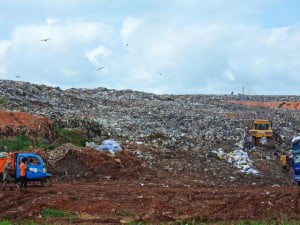 Although this Israeli company has been around for over 40 years selling hardware like boilers and piping, Energy Industries has decided to take a greener turn and focus its efforts on energy conservation methods. Deriving literal meaning from the well-known adage “one man’s trash is another man’s treasure,” Energy Industries recently began a project in Kumasi, Ghana, the African nation’s second largest city, to construct a power plant that will run solely on the methane gas emitted from a giant landfill of organic waste. Their $6 million contract to construct the plant is part of Western countries’ pledge in the Kyoto Protocol, an international treaty that sets obligations on industrialized countries to reduce emissions of greenhouse gases. In addition to the garbage-run power plant project, Energy Industries has also invented an environmentally sound method for heating greenhouses located in cold climates, which require large amounts of electricity and boilers to keep them at the right temperature. In an experimental project in Georgia, Energy Industries’ technology was used to redirect hot spring water into pipes that would heat the greenhouses naturally, saving agriculturalists millions in electricity bills.
Although this Israeli company has been around for over 40 years selling hardware like boilers and piping, Energy Industries has decided to take a greener turn and focus its efforts on energy conservation methods. Deriving literal meaning from the well-known adage “one man’s trash is another man’s treasure,” Energy Industries recently began a project in Kumasi, Ghana, the African nation’s second largest city, to construct a power plant that will run solely on the methane gas emitted from a giant landfill of organic waste. Their $6 million contract to construct the plant is part of Western countries’ pledge in the Kyoto Protocol, an international treaty that sets obligations on industrialized countries to reduce emissions of greenhouse gases. In addition to the garbage-run power plant project, Energy Industries has also invented an environmentally sound method for heating greenhouses located in cold climates, which require large amounts of electricity and boilers to keep them at the right temperature. In an experimental project in Georgia, Energy Industries’ technology was used to redirect hot spring water into pipes that would heat the greenhouses naturally, saving agriculturalists millions in electricity bills.
Pythagoras Solar
 Pythagoras was an ancient Greek philosopher responsible for a good deal of modern geometry, but he also fathered the notion that the earth is a sphere rotating around the sun. While the Israeli energy company Pythagoras Solar may not be nearly as novel, it has developed important technology to advance our increasingly urban lives into the age of alternative energy. The company’s aim is to create a system of solar panel-covered skyscrapers and office buildings that will essentially power themselves through a Photovoltaic Glass Unit, orwindow with solar cells that save and generate energy from the sun. The electricity that is drawn from the sun during the peak daylight hours is then run through a DC/AC inverter that channels the electricity through the entire building and, maybe one day, to other buildings in its proximity. As the company told NoCamels, “The windows have a higher transparency level than regular windows and therefore optimize natural daylight inside buildings, increasing the energy efficiency gains through reduced air-conditioning and lighting costs.” With Israel’s own parliamentary building, the Knesset, set to become the world’s first to generate its own electricity using solar panels, creative alternative energy solutions based on existing infrastructure like the ones offered by Pythagoras Solar are certainly a step in the right direction.
Pythagoras was an ancient Greek philosopher responsible for a good deal of modern geometry, but he also fathered the notion that the earth is a sphere rotating around the sun. While the Israeli energy company Pythagoras Solar may not be nearly as novel, it has developed important technology to advance our increasingly urban lives into the age of alternative energy. The company’s aim is to create a system of solar panel-covered skyscrapers and office buildings that will essentially power themselves through a Photovoltaic Glass Unit, orwindow with solar cells that save and generate energy from the sun. The electricity that is drawn from the sun during the peak daylight hours is then run through a DC/AC inverter that channels the electricity through the entire building and, maybe one day, to other buildings in its proximity. As the company told NoCamels, “The windows have a higher transparency level than regular windows and therefore optimize natural daylight inside buildings, increasing the energy efficiency gains through reduced air-conditioning and lighting costs.” With Israel’s own parliamentary building, the Knesset, set to become the world’s first to generate its own electricity using solar panels, creative alternative energy solutions based on existing infrastructure like the ones offered by Pythagoras Solar are certainly a step in the right direction.
Bluesphere
Sign up for our free weekly newsletter
Subscribe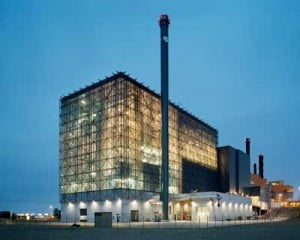 Here’s another Israeli superstar in the realm of trash-to-gas. Bluesphere was founded in 2010 with the knowledge that one of the fastest growing clean energy sectors is waste-to-energy, driven by the race to find a simple alternative to currently depleting energy resources and the knowledge that humans (and animals) generate endless tons of organic waste. The company builds, owns and operates (BOO) waste-to-energy plants, creating biofuels from thousands of tons of food and farm waste, which is then sold to local utilities providers to power steam turbines used in electricity production. The company prides itself on constructing its waste processing plants near areas were feedstock and food production waste are readily available in order to reduce transportation costs and pollution. Recently the company announced plans to construct a 5.2 megawatt project in Charlotte, North Carolina, which will be up and turning trash into electricity by next year, to be followed by a plant in Rhode Island and 11 more facilities in the US and West Africa. While green fanatics are probably convinced, it comes as a big surprise that one of the largest power holding companies in the US (whose name remains undisclosed) has signed a long-term agreement with Bluesphere to purchase electricity generated in the up-and-coming Charlotte plant.
Here’s another Israeli superstar in the realm of trash-to-gas. Bluesphere was founded in 2010 with the knowledge that one of the fastest growing clean energy sectors is waste-to-energy, driven by the race to find a simple alternative to currently depleting energy resources and the knowledge that humans (and animals) generate endless tons of organic waste. The company builds, owns and operates (BOO) waste-to-energy plants, creating biofuels from thousands of tons of food and farm waste, which is then sold to local utilities providers to power steam turbines used in electricity production. The company prides itself on constructing its waste processing plants near areas were feedstock and food production waste are readily available in order to reduce transportation costs and pollution. Recently the company announced plans to construct a 5.2 megawatt project in Charlotte, North Carolina, which will be up and turning trash into electricity by next year, to be followed by a plant in Rhode Island and 11 more facilities in the US and West Africa. While green fanatics are probably convinced, it comes as a big surprise that one of the largest power holding companies in the US (whose name remains undisclosed) has signed a long-term agreement with Bluesphere to purchase electricity generated in the up-and-coming Charlotte plant.
Ormat Technologies
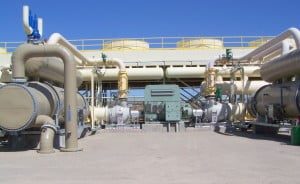 Thanks to geothermal energy, Israel is deriving cleaner energy from the Earth’s fiery core all while building green bridges with the world’s largest Muslim country, Indonesia. Ormat Technologies, based in the United States but founded in Israel, is in the top three of the world’s leading geothermal energy companies and is one of the only companies involved in recovered energy generation, the process of substituting energy-laden power plants with systems run on geothermal energy. Using their Ormat Energy Converter (OEC), a power generation unit that converts low, medium and high-temperature geothermal heat into electricity with little to no emissions, Ormat Technologies is transforming the future of our battery-powered, coal-driven planet with the natural energy located right under our feet. To date, the company has installed over 750 geothermal power plants worldwide, including a number in the United States, Canada, Guatemala, Germany, Japan, Kenya, India, and now in Indonesia, with the recent $1.17 billion deal to construct a gigantic geothermal project in the North Sumatra province. Just this past September, the company reportedly entered into an agreement with eBay to build a geothermal plant that would power the auction website’s Salt Lake City data center and also completed the construction of the world’s largest geothermal plant in New Zealand.
Thanks to geothermal energy, Israel is deriving cleaner energy from the Earth’s fiery core all while building green bridges with the world’s largest Muslim country, Indonesia. Ormat Technologies, based in the United States but founded in Israel, is in the top three of the world’s leading geothermal energy companies and is one of the only companies involved in recovered energy generation, the process of substituting energy-laden power plants with systems run on geothermal energy. Using their Ormat Energy Converter (OEC), a power generation unit that converts low, medium and high-temperature geothermal heat into electricity with little to no emissions, Ormat Technologies is transforming the future of our battery-powered, coal-driven planet with the natural energy located right under our feet. To date, the company has installed over 750 geothermal power plants worldwide, including a number in the United States, Canada, Guatemala, Germany, Japan, Kenya, India, and now in Indonesia, with the recent $1.17 billion deal to construct a gigantic geothermal project in the North Sumatra province. Just this past September, the company reportedly entered into an agreement with eBay to build a geothermal plant that would power the auction website’s Salt Lake City data center and also completed the construction of the world’s largest geothermal plant in New Zealand.
SDE Wave Energy
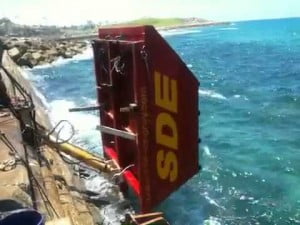 The future of alternative energy may be as peaceful as waves gently crashing on a beach, or at least that was the inspiration for the creation of SDE Wave Energy solutions by founder and CEO Shmuel Ovadia. The company, which was named a world leader in sea wave energy technologies and secured a place among the Top 100 Clean Energy Technologies in 2012, dominates its field with its technology that uses the power of both a wave’s ascent and descent in an efficient and fully automated method of suspension. Just last year, following a massive power failure in India that left 600 million people without electricity, the Indian government turned to SDE to construct power plants along the coastline that could act as back-up power sources in the case of emergency. In essence, SDE installs buoys in areas of breakwater that are pushed up and down against a hydraulic liquid which can then be converted into electricity through a generator on land. When there are larger waves that surpass the buoy, a self-correcting mechanism is able to flip over the buoy and wait for lower tide in order to flip it back into an energy-producing machine. Producing electricity at about half the cost of conventional methods, SDE’s wave energy plants have also been installed in India, Israel, China and nine other coastal destinations around the globe.
The future of alternative energy may be as peaceful as waves gently crashing on a beach, or at least that was the inspiration for the creation of SDE Wave Energy solutions by founder and CEO Shmuel Ovadia. The company, which was named a world leader in sea wave energy technologies and secured a place among the Top 100 Clean Energy Technologies in 2012, dominates its field with its technology that uses the power of both a wave’s ascent and descent in an efficient and fully automated method of suspension. Just last year, following a massive power failure in India that left 600 million people without electricity, the Indian government turned to SDE to construct power plants along the coastline that could act as back-up power sources in the case of emergency. In essence, SDE installs buoys in areas of breakwater that are pushed up and down against a hydraulic liquid which can then be converted into electricity through a generator on land. When there are larger waves that surpass the buoy, a self-correcting mechanism is able to flip over the buoy and wait for lower tide in order to flip it back into an energy-producing machine. Producing electricity at about half the cost of conventional methods, SDE’s wave energy plants have also been installed in India, Israel, China and nine other coastal destinations around the globe.
Brenmiller Energy
 Solar energy is one of the most readily available sources of alternative energy to date, but as Nir Brenmiller, Vice President of Brenmiller Energy points out in an interview with NoCamels, the methods of harvesting it are in need of a drastic makeover. The most common method for harvesting solar energy is through photovoltaic glass (PV cells), which can be bought cheaply over the internet, but whose function is entirely dependent upon strong daytime sunlight. As Brenmiller puts it, “dispatchability, or how much electricity can be immediately used on a power grid, is the hottest buzz word in the alternative energy sector, and PV cells just don’t seem to have it.”
Solar energy is one of the most readily available sources of alternative energy to date, but as Nir Brenmiller, Vice President of Brenmiller Energy points out in an interview with NoCamels, the methods of harvesting it are in need of a drastic makeover. The most common method for harvesting solar energy is through photovoltaic glass (PV cells), which can be bought cheaply over the internet, but whose function is entirely dependent upon strong daytime sunlight. As Brenmiller puts it, “dispatchability, or how much electricity can be immediately used on a power grid, is the hottest buzz word in the alternative energy sector, and PV cells just don’t seem to have it.”
The Brenmiller method, based on solar thermal methods that take the heat of the sun, convert it into steam and then into electricity, eliminates the environmental hazards of other solar thermal systems on the market and can potentially be used to fuel nearly 70 percent of the average power station’s energy needs, come rain or come shine. The other 30 percent, used to convert the solar-thermal network into electricity power stations, is derived from natural gas and even ecological biomass. “Our goal is to make solar energy a mainstream alternative to fossil fuels,” says Brenmiller, which is why the family-run company has used its experience in the field (Avi Brenmiller is the former head of Solel Solar Systems, acquired by Siemens AG for about $400 million in 2009) to try to create an efficient and cost-effective solar-thermal option. Currently the company is completing construction of an entirely self-sustainable and self-cleaning ‘floating’ solar thermal field in Israel’s Negev desert that will be its pilot for future projects.
Photos: Unsplash/ Energy Industries/ Emefcy/ Power Engineering/ Wikipedia/ SDE Wave Energy/ Screenshot/ Brenmiller Energy
Related posts

Resilient And Nutritious New Plant-Based Milk Aims To Make A Splash

Chocolate From Cultivated Cocoa Comes Without Environmental Toll

Plastic Fantastic: Startup Takes PVC Back To Its Crude Oil Roots


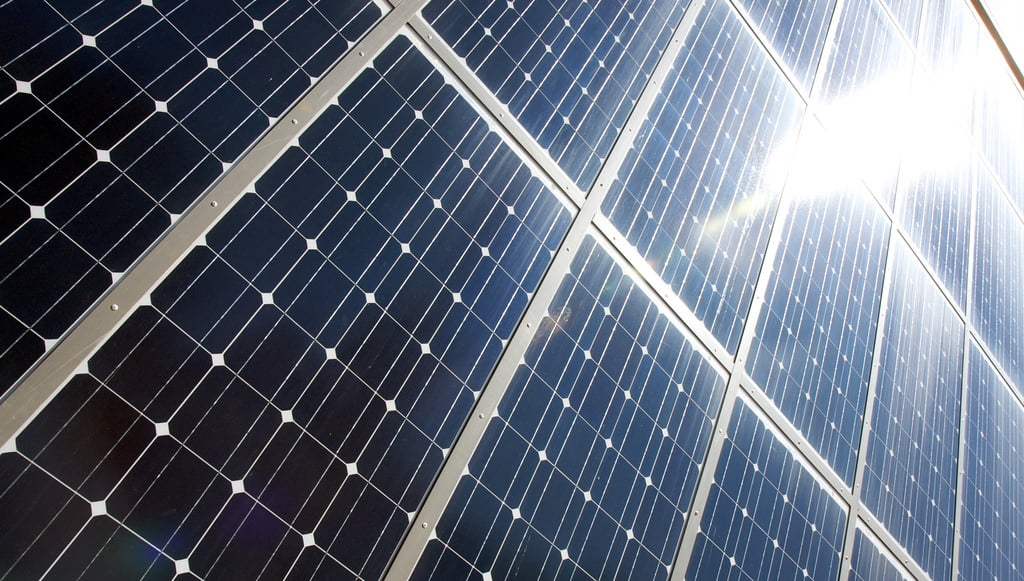

Facebook comments